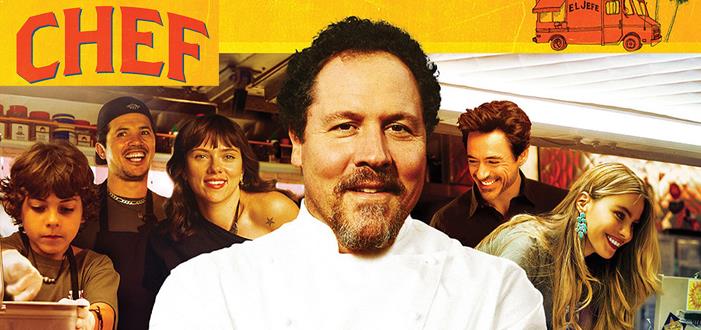
Chef
Chef is a film that splendidly captures the revolution against the suffocation of the Last Man horde. While until the time of tweets, the profit motive married to mass production generated the necessarily degenerate mass media, vulgarizing society as a necessity of catering to the base needs the masses subscribe always to, the individual now has his lethal poisoned darts to fend off the horde. That is to say, the manufacturing of mass culture which has inundated the participants of quote late capitalism, to be sardonically post-modern, is losing its production efficiency to the resounding pleasure of being an individual, one amongst many.
Of course, like many of us discover, this power that is instantaneously present at the time of the Chef’s release comes accidentally. The main chef inadvertently is smacked around by the cosmos to reveal the newfound realization that he can do what he wants now. He does not have to work toward someone else’s ends. He can create what he desires, because what he desires is good and will be made known to the world. In a subtle way, we have witness to the transvaluation of values, accomplished via this transient sociological paradigm of the submerging Christian proletarian to, what else, the tyrants of value: the creative individual.
This is the evolution of capitalism into more complex means of production. An individual is now able to profit from his creativity, escaping the confines of bureaucratic management of production which puts him in a strait jacket. His only other recourse is to collect the capital on his own, to direct production in the way he sees fit. Much easier said than done, as it requires persuading capitalists that the investment is worth the risk of trusting an oftentimes unproven individual.
Fortunately, the chef is proven. He is a known commodity. So when sparks fly as he loses his obedience to working for subsistence versus something more transcendent to man, he does not fall hard. He lands on his feet by coordinating capital more efficiently. Meaning, he leverages technology with his own kitchen, escaping the necessity to occupy unnecessary real estate. Not, of course, planned, but discovered. This subtle truth is elementary to entrepreneurialism, yet is nevertheless perennially absent in the minds of the self-believing intelligent, who yearn to plan and control production in an effort to improve society. The world, as recent history patently has proven, does not work this way unless it is for the intentional or unintentional extermination of the human race.
What is also celebrated in Chef is the essence of education. And again, we have the successful emphasis of the individual’s participation in its facilitation to posterity. Alongside the discovery of the burgeoning entrepreneurial capacity in the economy for individual creativity, the chef and his success happily nurtures his son and his son’s interest in his father’s passion. Indeed the father remarks that he is not good at many things, but cooking is one of them. And the son has always known this. He has simply always been ignored – it’s even conjectured by the film that the chef’s self-centeredness with the passion as the reason for his divorce. But miraculously, as everything converges, he reassembles his broken family, and by extension his broken life. This is clearly a redemptive story.
Grade: A-

